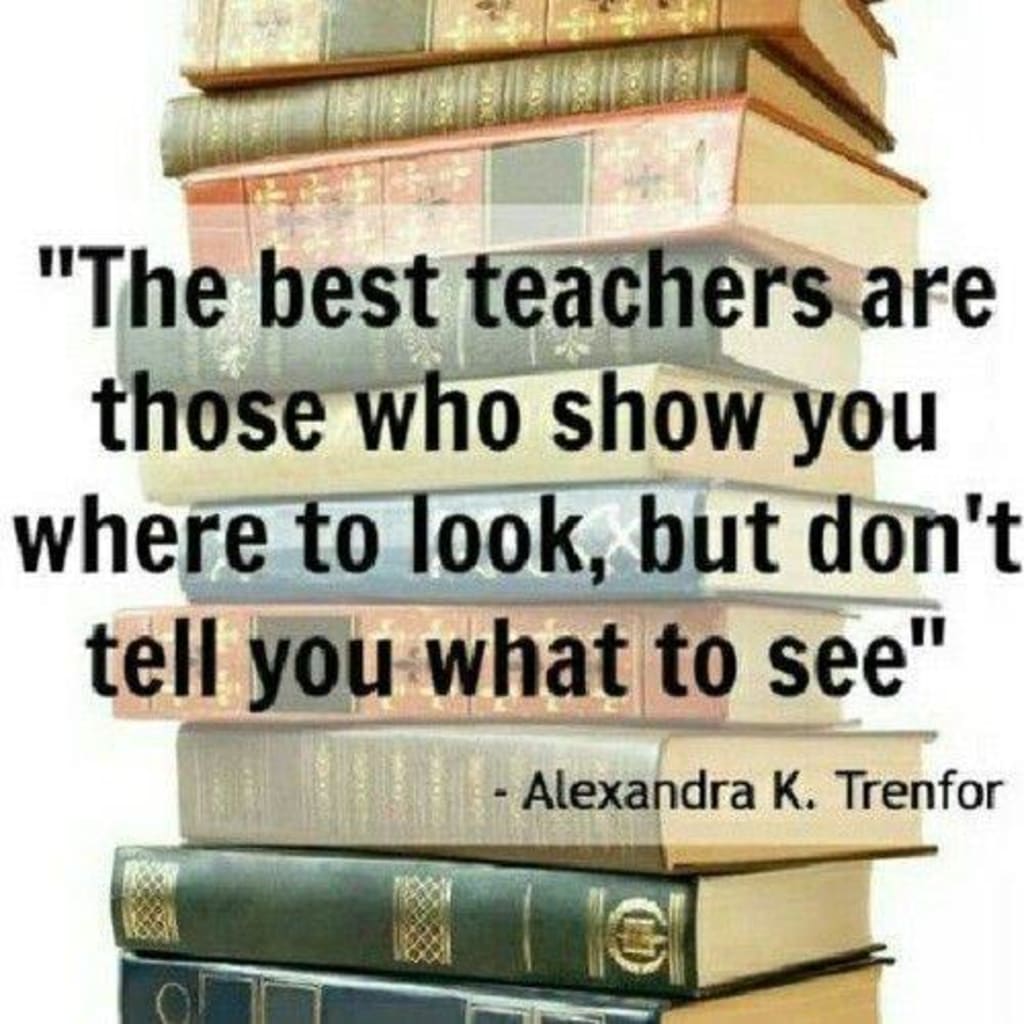Race and Education
Why I Decided to Become a Teacher

Wake Up Call
“America is becoming more and more racially, linguistically, and culturally diverse, the teacher corps is becoming less and less so. This ‘demographic divide’ as Gay and Howard call it is troubling because more and more students of color are less likely to be taught by teachers familiar to their home cultures and language. Further, they are more likely to be taught by mono-lingual teachers from dominant cultures, who along with their lesson plans bring, often bring misperceptions about race and culture” (Dickar, 2008 pg. 116). Does teacher race and culture greatly influence the quality of education provided to students? One might think that a Black teacher may be more effective with Black students and families because they “understand” the needs and the struggles often associated with Black people. My experiences challenge this idea.
Several factors influenced my decision to become a teacher. As said by many teachers, I chose to become a teacher because I wanted to make a difference in the lives of children and I wanted to have an impact on society as a whole. While these are indeed important and admirable reasons for one to enter the world of education, those weren’t my primary reasons. From childhood I enjoyed teaching. I have vivid memories of teaching my younger cousins their alphabets and numbers and throughout the years I have had some interesting teachers who influenced my decision to want to teach. I often credit my second grade teacher as the most influential teacher in my life because she was so caring, compassionate and made me feel as if I could move the stars if that was something that I wanted to do. However as the years pass, I realize that she wasn’t the most influential teacher in my life. While she was amazing, she could not compare to my fourth grade teacher. My fourth grade teacher was an African- American woman with a very small body frame; she had the most beautiful brown skin that I had ever seen. I thought that she was the most beautiful woman in the world. When I was assigned to her fourth grade class I was ecstatic. Not only was I going to be taught by the most beautiful woman on the planet, (that mattered to me at the age of eight) but for the first time, my formal education was coming from a Black woman.
Prior to fourth grade, I hadn’t had a Black teacher. While I attended a school in my neighborhood (predominately working poor African- American families), the only Black people in my school were the lunch ladies, the custodians and the school aides. Having a Black teacher was so significant to me. I remember lining up on the first day of school and seeing her stand before me and I remember thinking that this school year was going to be the best. Unfortunately, it wasn’t, in fact all of my hopes and dreams and expectations of Ms. Jenkins never came to pass. While Ms. Jenkins did look like me in regards to skin color, she didn’t act like me, she didn’t speak like me and she didn’t seem to like anything that she saw in me and my other classmates. Ms. Jenkins didn’t come from my community or any community that was similar to mine. As a child, I assumed that all Black people lived the way that I lived. Ms. Jenkins openly expressed that she was nothing like us or our parents and in so many words she expressed to us that we were “wrong” and inferior to the Black people who lived in houses and whose parents had higher levels of formal education.
As a child it was a lot for me to process. How could a woman who shared the same skin color as me be so different from me? Was there a flourishing Black life that existed beyond the constraints of my neighborhood? Was the Cosby show a true representation of some Black people that lived in this country? While my thinking wasn’t very sophisticated at the age of eight, I was very confused and worst of all I became discontent and disappointed with my own life. I was aware of the fact that there were White people who believed that they were superior to me, but I never knew that there were Black people who believed that they were superior to me.
That year in Ms. Jenkins class was a very painful year for me, however it was a very important and significant year for me as an educator and as a person as a whole. Because of Ms. Jenkins, I decided that I wanted to become a teacher and that I wanted to work exclusively with Black and Hispanic children who come from impoverished families and communities. I wanted my students to look at me and see a person who not only looked like them, but also understands them. I wanted my students to walk away from me feeling inspired and empowered.
Education from Experience
While I don’t believe that my desires and goals to work exclusively with Black and Hispanic children who come from impoverished families and communities is necessarily a bad thing, I do believe that it does interfere with my ability and more bluntly my willingness to work with children who come from more affluent families. I like to think of myself as an open -minded and non-judgmental person; however I know that I am biased against families who are financially affluent. My primary reason for this bias is the fact that I believe that I am most needed in my community and that children who come from affluent families have access and opportunities. I want to utilize my experience and my Bank Street Education to give children with similar backgrounds as mine the same opportunities afforded to children of means.
With an understanding that children, regardless of their race, socioeconomic status, gender and family make-up all have the same needs in regards to the fact that they all need love, compassion, opportunities to feel successful, opportunities for self- expression, and an educator who is knowledgeable and aware of their needs and that families regardless of race, socioeconomic status and family makeup usually love their children and want what is best for them. I realize that my desire to work exclusively with children who come from impoverished families and communities will affect my ability to be an effective inclusive teacher. In my career as a special education teacher I will encounter children and families from all walks of life and it is my ethical responsibility to respect each family and provide quality service. The fact that I can consciously admit that I have a bias and I am aware of where it stems from, I am able to address it and take the necessary steps to work through it and become the most effective educator and advocate for my students and families.
Conclusion
As I review all that I have written, I realize that the most important factor in developing and maintaining positive relationships with families is mutual respect. It may sound like a simple solution to a complex and prevalent issue affecting families and educators, but it is the key ingredient to bridging the gap between home and school. When educators respect the fact that families are priceless resources for teachers when learning about their students and when parents respect the fact that teachers are valuable resources and a part of a support system for them and their child, the possibilities are endless. Based upon my research and personal experiences, race, gender, socioeconomic status similarities and differences are only a factor in the relationships between families and educators when we (families and educators) are unable or more appropriately, unwilling to view people as individuals and not as groups. As an educator and guardian of a five year old, I have been on both sides of the fence. I can understand the level of frustration had by teachers when parents are uncooperative and don’t attend the school meetings and don’t overtly show an interest in their child’s education. On the other end, I can understand the humiliation, frustration and anger that a parent feels when educators address them as if they are inferior and assume that they are uninterested in their child’s education because they are unable to attend every meeting or understand teacher jargon. Viewing one another as a valuable resource is the first step in creating harmonious and successful family-educator relationships and bridging the gap between home and school.
Bibliography
.
Dickar, M. (2008). Hearing the silenced dialogue: an examination of the impact of
teacher race on their experiences. Race Ethnicity and Education. Pg.116.





Comments
There are no comments for this story
Be the first to respond and start the conversation.